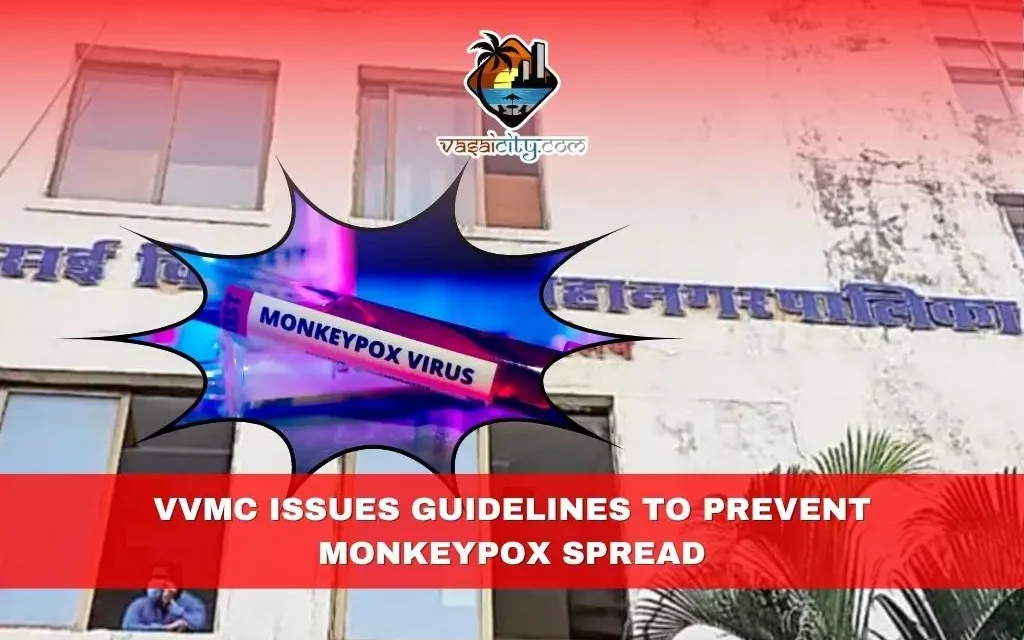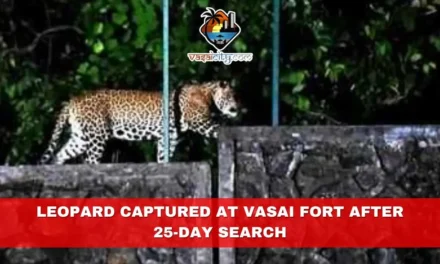In recent times, the world has witnessed a growing concern over the spread of the Monkeypox virus, a disease that has been reported in several countries. Sweden and Pakistan are among the nations where cases of Monkeypox have been identified, sparking global attention and a call for preventive measures. The Vasai-Virar City Municipal Corporation’s Health Department has taken proactive steps by issuing important guidelines to help the public understand the virus and take necessary precautions.
Understanding Monkeypox
Monkeypox is a disease caused by the Orthopoxvirus, a type of DNA virus that is naturally found in certain species of rodents and monkeys. These animals serve as the primary hosts of the virus. The infection period of the disease typically lasts between 6 to 13 days, but in some cases, it can extend from 5 to 21 days. This variability in the incubation period can make it challenging to detect and contain the virus early on.
How Does Monkeypox Spread?
The transmission of Monkeypox occurs through various means. One of the primary methods of transmission is direct physical contact with an infected individual. This includes contact with bodily fluids, lesions, or sores that are present on the skin of the infected person. Additionally, Monkeypox can spread through indirect contact, such as touching clothing, bedding, or other materials that have been used by someone with the virus. Prolonged close contact with an infected person can also lead to respiratory droplets being inhaled, which is another way the virus can spread.
Symptoms of Monkeypox
The symptoms of Monkeypox are often mild, and in most cases, the patient recovers within 2 to 4 weeks. However, the onset of the disease can cause significant discomfort and concern. The most common symptoms include:
- Fever: One of the earliest signs of infection is the sudden onset of fever.
- Swollen Lymph Nodes: The lymph nodes, particularly those located behind the ears and in the axillary (armpit) area, may become swollen and tender.
- Headache: Persistent headaches are another common symptom experienced by those infected.
- Body Aches: Muscle aches and general discomfort in the body are typical.
- Chills and Sweating: Patients often experience episodes of chills followed by excessive sweating.
- Sore Throat and Cough: As the infection progresses, some individuals may develop a sore throat and cough.
Preventive Measures Against Monkeypox
Given the growing concern over the spread of Monkeypox, public awareness and preventive measures are crucial in controlling the disease. The Vasai-Virar Municipal Corporation’s Health Department has provided several recommendations to help reduce the risk of infection:
- Maintain Personal Hygiene: Keeping hands clean is one of the most effective ways to prevent the spread of the virus. Regular handwashing with soap and water, or the use of alcohol-based hand sanitizers, is strongly advised.
- Avoid Contact with Infected Individuals: It is essential to maintain a safe distance from anyone suspected of having Monkeypox. This includes avoiding physical contact and refraining from sharing personal items such as clothing or bedding.
- Use of Personal Protective Equipment (PPE): Healthcare workers and individuals who are caring for suspected or confirmed Monkeypox patients should wear appropriate PPE, including gloves, masks, and gowns, to prevent exposure to the virus.
- Seek Medical Attention: If you or someone you know begins to exhibit symptoms associated with Monkeypox, it is crucial to seek medical advice immediately. Early diagnosis and isolation of the patient can help prevent the spread of the virus.
Conclusion
As the world grapples with the resurgence of Monkeypox, it is vital that we remain vigilant and proactive in our efforts to prevent the spread of this virus. The Vasai-Virar Municipal Corporation’s Health Department’s guidelines serve as a timely reminder of the importance of public awareness, personal hygiene, and prompt medical attention in combating this disease. By following these recommendations, we can work together to protect ourselves and our communities from the threat of Monkeypox.












